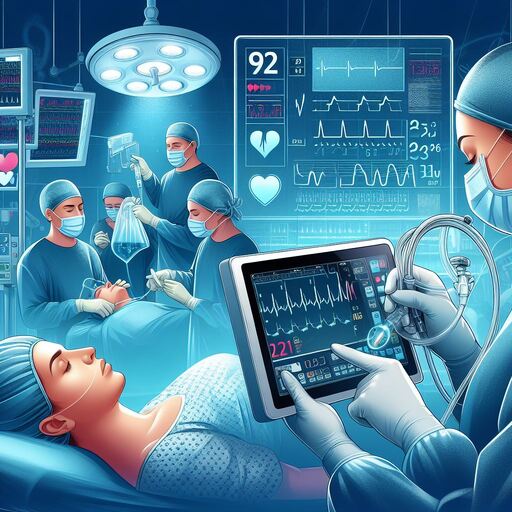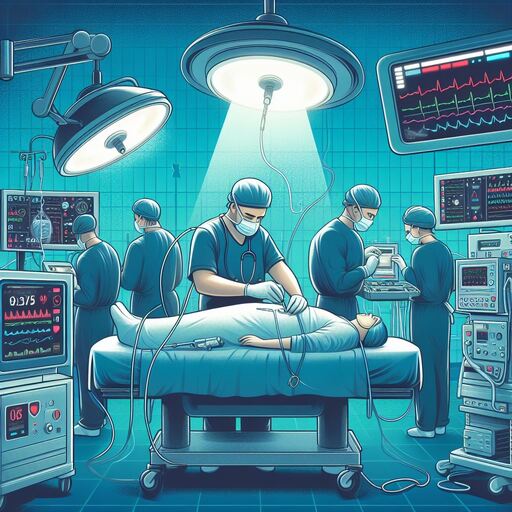Innovation in Care Anesthesia Vital Role in Modern Medicine
Innovation in Care Anesthesia Vital Role in Modern Medicine
Anesthesia represents a cornerstone of modern medical care, revolutionizing surgical procedures and patient outcomes through continuous innovation. From its humble beginnings to cutting-edge techniques, anesthesia has evolved into a critical component of healthcare, enhancing safety, comfort, and efficacy in medical interventions. In this article, we will explore the transformative role of anesthesia in modern medicine, highlighting its innovative practices and the vital contributions it makes to patient care.
The Evolution of Anesthesia: Pioneering Discoveries
The history of anesthesia is marked by pioneering discoveries and breakthroughs that have transformed medical practices. In the early 19th century, visionaries like Dr. Crawford Long and Dr. William T.G. Morton introduced ether and other substances to induce unconsciousness during surgical procedures, alleviating pain and trauma for patients undergoing operations.
As anesthesia techniques advanced, new medications and delivery methods emerged, paving the way for safer and more effective practices. The development of intravenous anesthesia, inhalational agents, and local anesthetics expanded the repertoire of anesthesia options available to healthcare professionals, enabling tailored approaches to pain management and sedation.
Innovation in Care Anesthesia Vital Role in Modern Medicine
Types of Anesthesia: Tailored Solutions for Patient Needs
Anesthesia encompasses diverse types, each tailored to specific medical contexts and patient requirements:
- General Anesthesia: General anesthesia induces a state of unconsciousness and analgesia, enabling surgeons to perform complex procedures without causing discomfort or distress to the patient. This form of anesthesia is essential for major surgeries and interventions that require complete sedation.
- Regional Anesthesia: Regional anesthesia targets specific nerve pathways to block pain sensation in localized areas of the body. Techniques such as epidural anesthesia, spinal anesthesia, and nerve blocks provide effective pain relief while allowing patients to remain conscious and cooperative during procedures.
- Local Anesthesia: Local anesthesia numbs a small area of the body where a surgical procedure will take place. It is commonly used for minor surgeries, dental procedures, and diagnostic tests, offering targeted pain relief without affecting overall consciousness.
Each type of anesthesia is carefully selected based on the nature of the procedure, patient’s medical history, and desired level of sedation.
Innovative Practices in Anesthesia: Advancing Patient Safety and Comfort
Innovation in Care Anesthesia Vital Role in Modern Medicine
Anesthesia continues to evolve with innovative practices that prioritize patient safety, comfort, and positive outcomes:
- Precision Medicine: Anesthesiologists employ precision medicine principles to customize anesthesia plans based on individual patient factors such as age, medical history, and drug sensitivities. This personalized approach maximizes safety and efficacy during procedures.
- Technological Advancements: Cutting-edge technologies like ultrasound-guided nerve blocks, capnography monitoring, and advanced anesthesia machines enhance the delivery and monitoring of anesthesia. These innovations improve accuracy, reduce risks, and optimize patient care.
- Multimodal Pain Management: Anesthesiologists employ multimodal pain management strategies that combine medications, nerve blocks, and regional anesthesia techniques to minimize postoperative pain and enhance recovery. This comprehensive approach promotes better patient outcomes and satisfaction.
- Enhanced Monitoring Systems: Continuous monitoring of vital signs, including heart rate, blood pressure, oxygen saturation, and respiratory function, ensures early detection of complications during anesthesia administration. Advanced monitoring systems contribute to improved patient safety and timely interventions.
The Crucial Role of Anesthesiologists: Expert Care and Leadership
Innovation in Care Anesthesia Vital Role in Modern Medicine
Anesthesiologists are highly trained physicians specializing in anesthesia and perioperative care. They play a pivotal role in modern medicine by:
- Assessing Patient Risk: Anesthesiologists conduct preoperative assessments to evaluate patient health, identify potential risks, and develop tailored anesthesia plans that optimize safety and outcomes.
- Administering Anesthesia: Anesthesiologists skillfully administer anesthesia medications and monitor patients throughout surgical procedures, adjusting anesthesia levels as needed to maintain optimal sedation and pain control.
- Managing Emergencies: Anesthesiologists are equipped to handle medical emergencies and complications that may arise during anesthesia administration, providing rapid interventions to ensure patient stability and well-being.
Conclusion: Advancing Healthcare Through Anesthesia Innovation
In conclusion, anesthesia plays a vital role in advancing healthcare through continuous innovation and expert care. From pioneering discoveries to cutting-edge practices, anesthesia has transformed surgical procedures, enabling pain-free interventions and improving patient outcomes. With a focus on safety, comfort, and personalized care, anesthesia practitioners uphold the highest standards of excellence in modern medicine.
As the field of anesthesia continues to evolve, driven by innovation and dedication, patients can confidently undergo surgical procedures knowing that anesthesia specialists are committed to their well-being and recovery. Through collaborative efforts and interdisciplinary approaches, anesthesia innovation remains at the forefront of modern healthcare, shaping the future of patient-centered medicine.
Innovation in Care Anesthesia Vital Role in Modern Medicine

